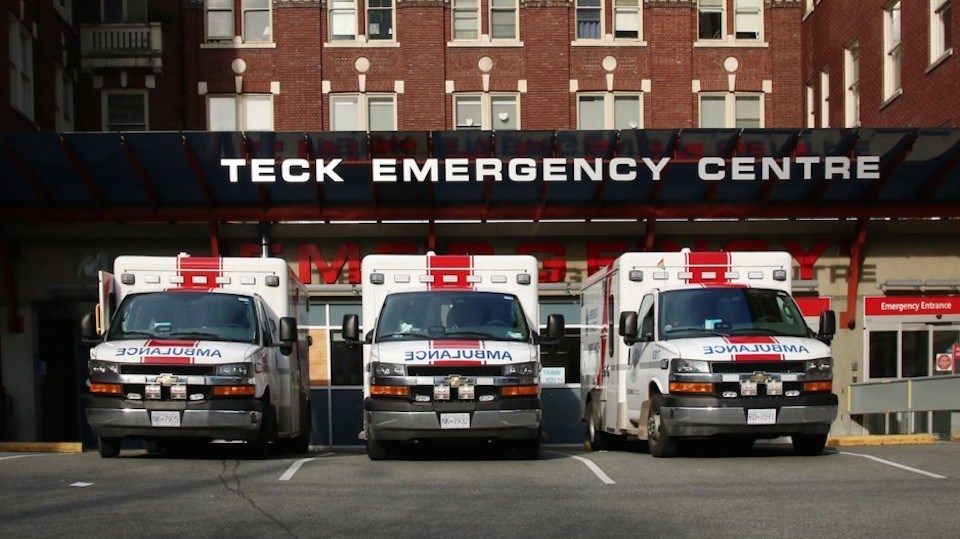In 2022’s second quarter, B.C. saw its highest quarterly increase in population since the mid-1990s, according to Statistics Canada.B.C.’s population surge threatens to overwhelm an already fractured health-care system.
The province welcomed 45,515 new people – enough to hike its population by 0.9 per cent compared with 2022’s first quarter, to 5.32 million residents.
Year over year, B.C.’s population jumped by 2.2 per cent – the largest increase since late 1996.
Nearly 60 per cent of the newcomers were non-permanent residents, but the number of new permanent residents was well above typical second-quarter increases, said Central 1 chief economist Bryan Yu.
He added that interprovincial migration to B.C. was also strong, with a net total of about 4,300 of those new residents moving to B.C. in the second quarter.
In that same quarter, COVID-19 patient counts in hospitals ranged between 273 and 596, and the doctors’ advocacy organization Doctors of BC estimated that 900,000 British Columbians were without a family doctor – a number that keeps rising.
Other cracks in the system were clear early in the pandemic, when the government to ensure sufficient hospital beds would be available in case the province was overwhelmed with severe COVID-19 infections.
He told people needing procedures such as hip replacements, cataract surgeries and hernia operations to simply wait – often in pain, and with no clear dates for when their medical treatments could take place.
Dix, who was not available for an interview, has taken measures to try to bolster the system – though not big enough measures and not soon enough, according to Opposition health critic Shirley Bond, who is calling for Dix to resign.
One of Dix’s bigger moves to retain recent medical school graduates came in June, when he offered incentives to encourage them to launch family doctor practices in B.C.
New family physicians to earn a $295,457 salary in their first year, plus a $25,000 signing bonus and medical-training debt forgiveness of up to $50,000 in the first year of work and potentially $20,000 in each of the next four years. Those doctors would also each get $75,000 to put toward their clinics’ overhead costs.
By the start of October, 54 doctors had signed the contracts and 60 others were in negotiations, according to B.C.’s Ministry of Health.
The ministry told BIV in an email that there is no cap to the number of new physicians that this program could finance.
A separate $118 million program aimed at keeping existing family doctors will provide about $25,000 to each family doctor in the province by January.
That program is short term because the B.C. government is renegotiating a master agreement with Doctors of BC that may change the province’s controversial fee-for-service model that many .
“We would certainly look at simplifying the fee schedule and [be] looking at greater compensation for overhead and operating costs,” Bond said.
Another of Dix’s policy announcements was to phase in 40 new undergraduate medical-school seats to add to the current 288 seats at University of British Columbia’s (UBC) Faculty of Medicine. He also wants to add up to 88 new residency seats at that school, starting in 2023.
Bond is calling on Dix to enlarge UBC’s medical school by 72 more seats than he is planning – to its capacity of 400.
“We just need to see a dramatic expansion of those seats,” Bond said.
Even if all those seats were in place today, it would take many years for those students to become doctors.
Bond said B.C. should provide more doctor residency spots to people who have completed medical school internationally. The province currently reserves 56 spots for those graduates, and Bond said she wants that to increase to 150.
These increases would be expensive, but Bond said the government should fund this expansion instead of running budget surpluses.
“The government just recently touted they were going to have a substantive surplus. If health care isn’t their No. 1 priority, it certainly should be.”
BC Nurses’ Union president Aman Grewal, meanwhile, has been calling on the province to increase the number of nursing positions at universities, . She estimated that B.C.’s medical system has 4,265 nursing vacancies.
The governing BC NDP’s 2020 election platform promised that it would , in time for the first class to launch in September 2023.
That initiative has stalled, with the government so far providing SFU with $1.5 million to write a business case for the school.
Empowering pharmacists is another way the government is aiming to make the province’s health-care system more efficient and better able to cope with a larger population.
Starting Oct. 14, pharmacists were given the ability to adapt and renew prescriptions for a wider range of drugs and conditions.
The province is also working with the College of Pharmacists of BC to enable pharmacists by early 2023 to prescribe medications for minor ailments and contraception.
Prescriptions remain valid for only one year after being issued, but the province is working toward extending that validity period to two years so doctors do not need to waste time reissuing prescriptions.


